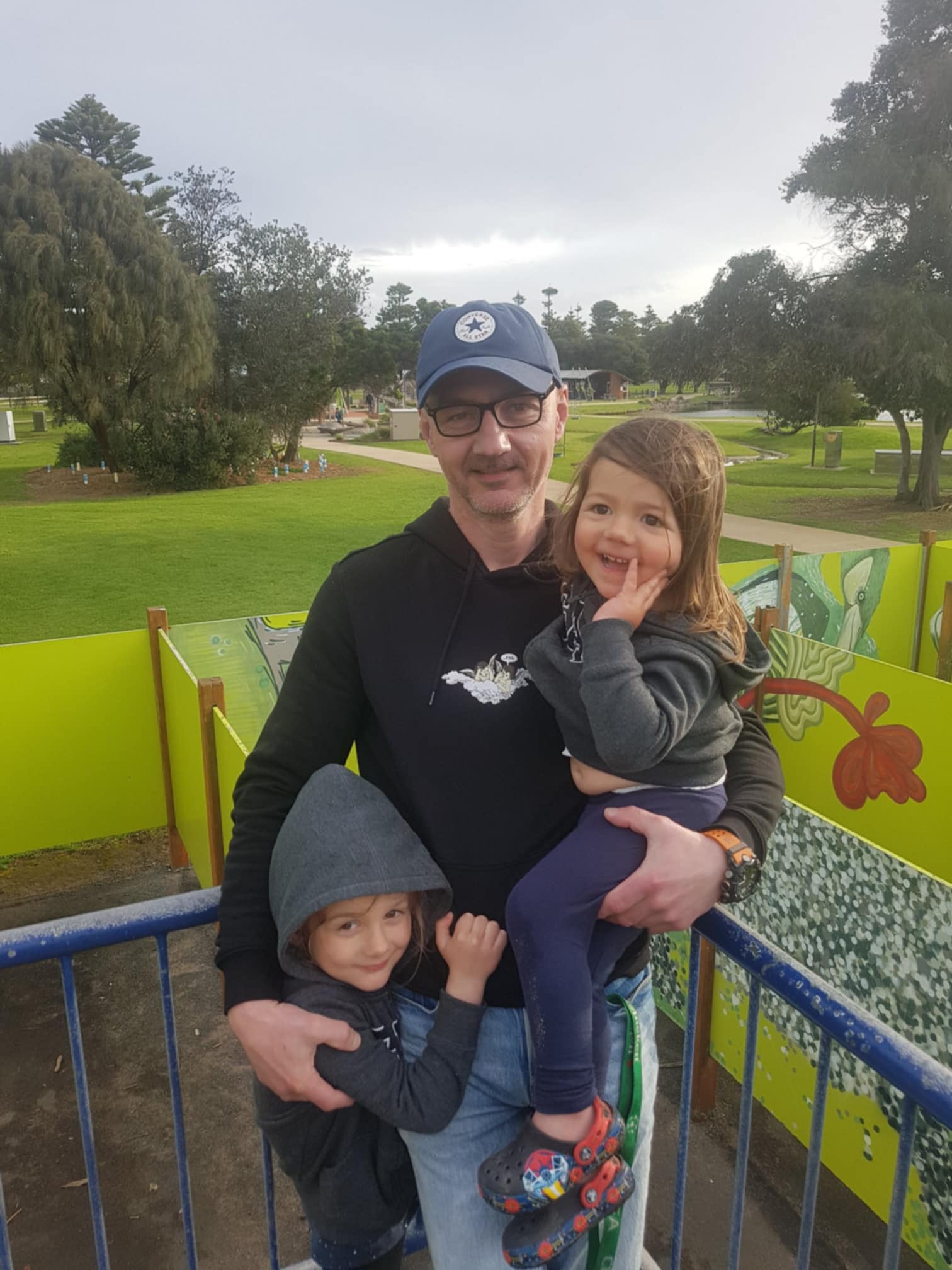
Sebastian Mysiorek’s new life in Australia was thrown into turmoil when he underwent tests for gastric-related symptoms 10 years ago.
He says he first experienced reflux and stomach pain around 2006 in his home country of Poland. While gastroscopy showed some stomach tissue changes, doctors told him not to worry about it.
He moved to Australia in 2008 and settled in Melbourne with his wife Magdalena. However, in 2012 he started to experience stomach pain again, and his symptoms progressed to vomiting by 2014.
When his GP referred him for endoscopy, he learned the shocking diagnosis.
“That’s when – BOOM – I was told I had stomach cancer,” he says.
Sebastian, who was only 38 years old at the time of his diagnosis, was among the 2500 Australians diagnosed with gastric cancers each year. Gastric cancer is the fifth most common cancer in Australia, and the fourth leading cause of cancer deaths worldwide.
“Within three days, my GP had organised all possible scans, which showed the cancer was confined to my stomach,” he says.
His GP asked if he might be interested in taking part in a clinical trial known as ‘TOPGEAR’, which aimed to work out the best mix of therapies to treat gastric cancer.
The trial – the largest such study to date to investigate radiation therapy for gastric cancer – was led by the Australasian Gastro-Intestinal Trials Group (AGITG), and run in collaboration with TROG Cancer Research, the European Organisation for Research and Treatment of Cancer (EORTC) and the Canadian Cancer Trials Group (CCTG).
Chief Investigator Professor Trevor Leong says a standard treatment for gastric cancer is to use chemotherapy together with surgery. However, the TOPGEAR trial aimed to answer a long-held question about whether patients would benefit from receiving radiation therapy as well as chemotherapy before surgery. This therapy combination was already being used in some centres, such as in the US, but there had been no large-scale studies to confirm if it improved patient outcomes.
Sebastian was among 574 patients with gastric cancer from across 15 countries who took part in the TOPGEAR trial.
He says the potential benefits and risks of the trial were explained to him, and he was keen to take part to contribute to scientific knowledge about how to treat gastric cancer.
“I thought by taking part, I might benefit and I can help doctors work out the best treatments” he says. “On the psychological side, I also thought I don’t want to have regrets about not trying everything I can.”
“I was 38 years old, I had no kids, I had nothing to lose – I thought let’s go for it,” he says.
Sebastian underwent chemotherapy, which saw him lose weight, experience nausea and require a short stay in hospital. He was among the group of patients in the TOPGEAR trial who also received five weeks of radiation therapy, which didn’t cause him any adverse effects.
He then underwent total gastrectomy surgery to remove his stomach and attach the oesophagus directly to the small intestine, allowing continued digestive function.
Sebastian recovered well from surgery, and his cancer has now been in remission for nine years.
He has returned to normal daily life, and he and Magdalena are now enjoying life with their two children: a son , aged 4, and daughter, aged 2.
“They are my absolute miracles following my treatment,” he says.
Results from the TOPGEAR recently published in the esteemed journal, the New England Journal of Medicine show that patients who had preoperative radiation therapy had a higher rate of pathological complete response – meaning the cancer became undetectable – compared to those who didn’t have radiation therapy.
However, at follow-up five years later, the combination of chemoradiotherapy prior to surgery did not make a significant difference to long-term survival rates, meaning there was no evidence it extended patients’ lives. As a result, it is not recommended that radiation therapy be added as part of standard care for patients with gastric cancer.
Professor Leong say the findings will change the way gastric cancer is treated around the world, reducing the treatment burden for patients who might otherwise have undergone repeated sessions of radiation therapy.
“We’re very grateful to all the trial participants who have helped provide us with important new knowledge to improve our understanding of oesophago-gastric cancer,” he says.
Sebastian has no regrets about taking part in the trial.
“My advice for anyone who has the opportunity to take part in a trial is: ‘go for it,” he says. “I feel you have to exhaust all possible options on your journey.”
“My way of thinking is that doing trials is the only way we can find a cure. At the end of the day, if we can find a better way of treating the cancer, it’s a win.”
TROG Cancer Research is a registered charity in Australia, holding the Deductible Gift Recipient (DGR) status, which means that donations over $2 are tax-deductible.